AI Solutions for Business Transformation Deep Learning
Leveraging artificial intelligence solutions is crucial for driving innovation, optimizing business processes, and achieving revenue growth.
Advanced AI systems—powered by deep neural networks, machine learning, and natural language processing—enable companies to analyze vast amounts of data, simulate human intelligence, and generate valuable insights.



In computer science, narrow AI exemplifies an artificial intelligence technique that leverages computational resources to analyze each data point and drive innovation. In fields like materials science and AI research, next-layer developments in AI programs showcase AI’s ability to process complex data, ultimately advancing our understanding and application of artificial intelligence.
This blog explores how cutting-edge AI technologies, including convolutional neural networks, recurrent neural networks, and deep learning techniques, revolutionize data processing and predictive analytics. Discover how these solutions transform marketing and sales efforts while enhancing customer experiences, and learn how LinkLumin can empower your business with powerful AI tools.
What is Artificial Intelligence?
Artificial intelligence (AI) refers to computer systems that simulate human intelligence.
Defining Artificial Intelligence
Artificial Intelligence (AI): The capability of machines to perform tasks that typically require human intelligence.
Artificial Intelligence AI: Modern systems that use machine learning algorithms and deep neural networks to process and learn from data.

Core Concepts
Artificial Neural Networks: Computing systems inspired by the human brain that consists of multiple nodes and layers.
Deep Neural Networks: Neural networks with multiple hidden layers that extract complex patterns from data.
Machine Learning: Algorithms that allow computers to learn from training data and improve over time without being explicitly programmed.
Exploring Neural Networks and Deep Learning
Neural networks are at the heart of modern AI solutions.
Neural Network Architecture
Input Layer: Receives raw data (e.g., images, text) to be processed.
Hidden Layers: Multiple layers where data processing occurs using artificial neurons.
Output Layer: Produces the final prediction or classification.
Deep Learning Techniques
Deep Learning: Deep neural networks perform image and speech recognition tasks.
Convolutional Neural Networks: Specialized neural networks are used primarily for image classification and computer vision.
Recurrent Neural Networks: Designed for processing sequential data, such as speech or text.
Hidden Layers: Multiple hidden layers enable deep networks to simulate human intelligence and perform complex transformations.
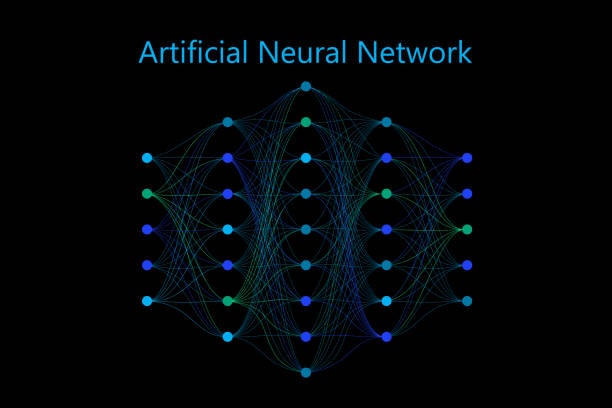
Training Data and Learning Processes
The success of AI systems depends on the quality of the training data and learning processes.
Data Collection and Preparation
Training Data: Labeled or unlabeled data used to train machine learning models.
Labeled Training Data vs. Unlabeled Data: Supervised learning requires labeled training data, while unsupervised learning works with unlabeled data.
Historical Data: Past data that helps in predictive modeling and benchmarking new data.
Learning Process in AI
Machine Learning Algorithms: The core of AI training processes that require human intelligence for initial configuration but eventually learn autonomously.
Neural Networks Learn: These systems learn by adjusting weights across multiple nodes and hidden layers, gradually improving performance.
Reinforcement Learning: A technique where models learn through trial and error using feedback from their environment.

Advanced AI Techniques in Data Processing
Modern AI solutions incorporate several advanced techniques to process data efficiently.
Data Processing and Transformation
Data Processing: The method of converting raw data into a usable format.
Deep Learning Algorithms: Algorithms that use deep learning networks to process data from multiple layers.
Complex Transformations: AI systems perform complex data transformations that traditional methods cannot match.
Applications in Computer Vision and Speech Recognition
Computer Vision: AI systems use convolutional neural networks for image and visual recognition tasks.
Speech Recognition: Leveraging recurrent neural networks and natural language processing, AI can convert spoken language into text.
Image Classification: Deep learning techniques enable the accurate classification of images, which is essential for many modern applications.
AI in Predictive Analytics and Business Intelligence

Artificial intelligence is a cornerstone of predictive modeling and business intelligence.
Predictive Modeling with AI
Predictive Analytics: Uses machine learning algorithms to forecast trends and customer behavior.
New Data: AI models continually process new data to update predictions in real-time.
Data Flows: Efficiently process data flows from multiple sources, ensuring accurate business insights.
Enhancing Business Intelligence
Actionable Insights: AI systems provide valuable insights that drive data-driven decisions.
Analytics Tools: Use tools like Google Analytics and advanced reporting software to monitor performance.
Revenue Growth: Optimizing marketing and sales efforts with AI leads to improved conversion rates and revenue growth.
Applications of AI in Various Industries
AI solutions have transformed multiple industries, from healthcare to automotive services.

AI in Medical Image Analysis
Medical Diagnosis: AI technologies, including deep neural networks, are used for medical image analysis and diagnosis.
Advanced AI: Provides faster and more accurate results compared to traditional methods.
AI in Marketing and Sales
Customer Relationship Management: AI enhances CRM by unifying customer data and automating personalized marketing campaigns.
Lead Scoring: Use AI tools to develop effective lead scoring systems, improving the quality of sales leads.
Closed Loop Marketing: AI-driven closed-loop analytics track the entire customer journey from initial engagement to conversion.
Impact on Sales and Marketing Teams
AI empowers both sales and marketing teams to work more efficiently and effectively.
Aligning Marketing and Sales Efforts
Sales and Marketing Alignment: AI helps align marketing campaigns with sales processes for a smoother sales cycle.
Unified Brand Message: Ensures that all marketing efforts create a cohesive customer journey.
Conversion Rate: Improved lead quality and nurturing lead to higher conversion rates.
Enhancing Marketing Campaigns
Effective Marketing Campaigns: AI optimizes marketing tactics based on data-driven insights.
Target Audience: Tailor marketing campaigns using detailed buyer personas and behavioral data.
Marketing ROI: Monitor and improve ROI through AI-powered analytics and closed-loop reporting.
Optimizing the Sales Funnel with AI
Streamlining the sales funnel is essential for converting leads into paying customers.
Lead Generation and Qualification
Generate Leads: Use AI to capture and nurture high-quality leads.
Lead Scoring System: Implement a lead scoring system to differentiate between marketing and sales-qualified leads.
Sales Pipeline: Optimize the sales pipeline with actionable insights from AI analytics.
Improving the Sales Process
Sales Cycle: Enhance the sales cycle by reducing friction through automation.
Sales Data Analysis: Use AI to analyze sales data and identify trends that improve the entire sales process.
Qualified Leads: Focus on generating more qualified leads for a smoother sales process.
Enhancing Customer Experience with AI
A superior customer experience is achieved when AI personalizes and optimizes every interaction.
Mapping the Customer Journey
Entire Customer Journey: AI tracks every customer journey stage to provide a unified view.
Customer Interactions: Analyze how customers interact with your website and marketing campaigns.
User Experience: Improve user experience by tailoring digital interactions based on AI insights.
Personalizing Customer Engagement
Customized Marketing Campaigns: Deliver personalized experiences using AI-powered segmentation.
Addressing Pain Points: Use data-driven insights to identify and address customer pain points.
Customer Satisfaction: Enhance customer satisfaction and build brand advocates through effective AI solutions.

Integrating Multiple Marketing Channels
A multi-channel approach is essential for a cohesive digital marketing strategy.
Coordinating Digital Marketing Channels
Marketing Channels: Combine SEO, email marketing, social media, and paid advertising to maximize reach.
Unified Data: Ensure that data from various channels is integrated into a cohesive view.
Target Audience: Identify and target the right audience using insights from multiple marketing channels.
Enhancing Cross-Channel Marketing
Consistent Messaging: Maintain a unified brand message across all digital marketing platforms.
Improved Lead Quality: Use AI to nurture leads effectively across all channels, driving higher conversion rates.
Effective Campaigns: Integrate marketing efforts to generate more qualified leads and revenue growth.

Implementing Closed-Loop Marketing Strategies
Closed-loop marketing ensures that every marketing campaign is measured and optimized for success.
Closed-Loop Analytics
Closed Loop Reporting: Track and measure the performance of marketing campaigns in real-time.
Actionable Data: Use closed-loop analytics to connect marketing efforts directly to sales outcomes.
Data-Driven Decisions: Refine marketing strategies based on detailed reports and actionable insights.
Improving Sales and Marketing Alignment
Unified Sales Funnel: Ensure that marketing and sales teams use the same data to optimize lead management.
Regular Meetings: Foster regular communication between marketing and sales departments to align on common goals.
Enhanced Conversion Rates: Improved alignment leads to a smoother sales process and higher conversion rates.
Best Practices for Implementing AI Solutions
Adopting AI solutions requires careful planning and execution.
Strategic Planning
Marketing Strategies: Develop a comprehensive digital marketing strategy incorporating AI for lead generation, customer segmentation, and predictive analytics.
Effective Marketing Campaigns: Use data-driven insights to craft campaigns that generate high-quality leads.
Cost Efficiency: Optimize marketing spend and reduce customer acquisition costs with advanced AI techniques.
Continuous Improvement and Optimization
Regular Reviews: Meet regularly to assess performance metrics and adjust strategies as needed.
Data-Driven Decisions: Leverage real-time data from analytics tools to refine marketing and sales efforts.
Optimization Tools: Use AI-powered tools for ongoing optimization of your sales funnel and marketing campaigns.
Leveraging Machine Learning and Neural Networks
Deep learning and neural networks are at the forefront of modern artificial intelligence solutions.
Understanding Neural Networks
Artificial Neural Networks: Systems that mimic the human brain using multiple nodes and layers.
Deep Neural Networks: Neural networks with multiple layers that use deep learning algorithms for complex data processing.
AI Learning Processes
Training Data: Use training data, both labeled or unlabeled, to train machine learning models.
Supervised vs. Unsupervised Learning: Implement supervised learning with training examples or unsupervised learning to identify patterns in unlabeled data.
Reinforcement Learning: Use reinforcement learning techniques to optimize AI performance over time.
Applications in Business
Predictive Modeling: Utilize neural nets and deep learning techniques for predictive analytics and forecasting.
Image and Speech Recognition: Employ convolutional and recurrent neural networks to enhance computer vision and speech recognition.
Natural Language Processing: Use AI to simulate human intelligence and process natural language for virtual assistants and customer support.
The Deep Learning Revolution
Deep learning has revolutionized the way AI systems process data and generate insights.
Advancements in Deep Learning
Deep Learning Models: Implement deep learning models that simulate the human brain’s neural network architecture.
Multiple Layers and Hidden Layers: Utilize deep networks with multiple layers to extract complex features from data.
AI Algorithms: Advanced AI algorithms and machine learning models drive effective predictive modeling and image recognition.
Impact on Business Intelligence
Enhanced Data Processing: The deep learning revolution improves data processing and enables the extraction of actionable insights.
Valuable Insights: Leverage deep learning techniques to analyze large volumes of historical and unstructured data, driving better business decisions.
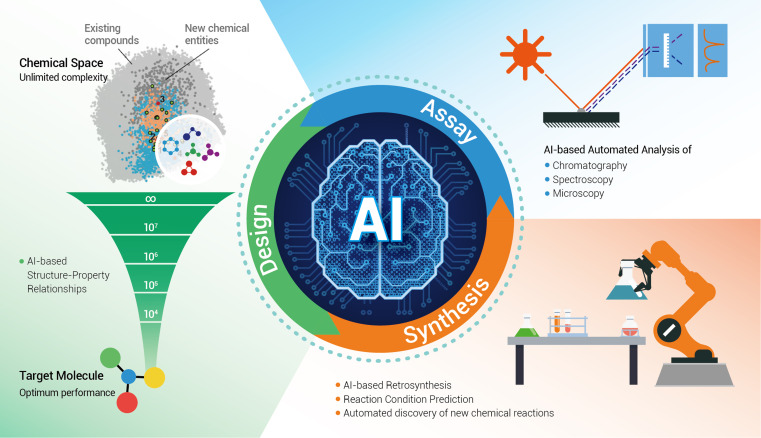
Applications of AI Solutions Across Industries
Artificial intelligence is transforming various industries by providing advanced analytical capabilities.
In Healthcare and Beyond
Medical Image Analysis: AI solutions like deep neural networks assist in medical image analysis and diagnosis.
Computer Vision and Speech Recognition: Improve customer experiences through virtual assistants and advanced customer support systems.
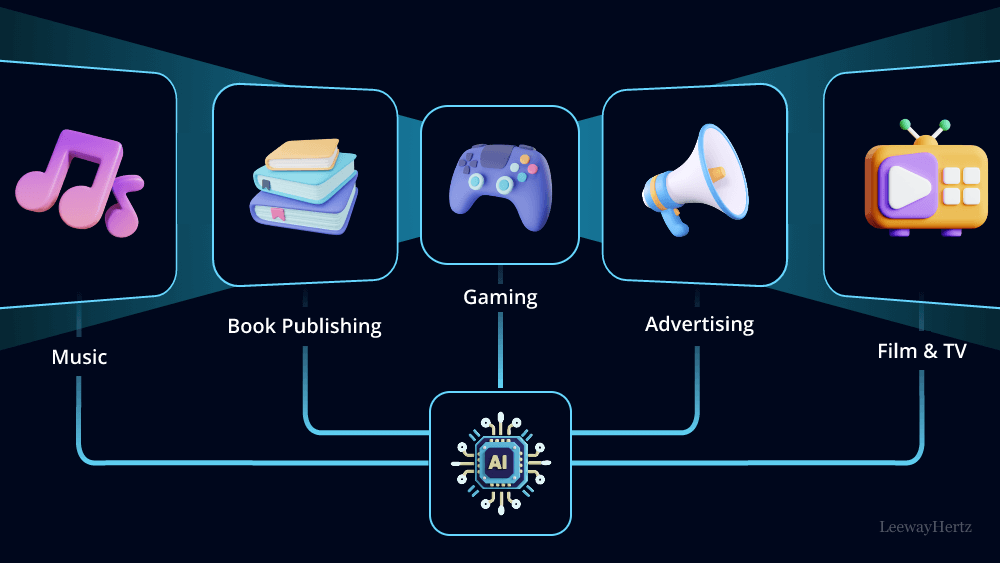
In Marketing and Sales
- Marketing Campaigns: Use AI to optimize campaigns, generate leads, and improve marketing ROI.
- Sales Pipeline: Enhance the sales process by integrating AI-driven lead-scoring systems and predictive analytics.
Broad Industry Applications
Data Processing: AI techniques process data more efficiently than traditional methods, enabling real-time insights.
Operational Efficiency: Enhance efficiency across various business processes by leveraging AI-driven automation.
Enhancing Customer Relationship Management with AI
Integrating AI solutions into customer relationship management (CRM) transforms customer interactions.
Building Unified Customer Profiles
Data Integration: Use AI to consolidate customer data from multiple sources, creating a single unified customer profile.
Personalized Marketing: Enhance customer interactions by delivering tailored marketing campaigns based on individual customer behavior.
Improving Customer Experience
Actionable Insights: Leverage AI-generated insights to identify pain points and improve customer satisfaction.
Customer Acquisition: Optimize customer acquisition strategies by analyzing data-driven trends and adjusting marketing efforts accordingly.

How LinkLumin Can Help with Artificial Intelligence Solutions
LinkLumin offers an innovative platform that empowers businesses to harness the power of artificial intelligence in their marketing and sales processes.
Comprehensive AI Integration
Unified Platform: LinkLumin consolidates customer and marketing data from multiple channels, enabling a unified view and advanced analytics.
Real-Time Insights: Access real-time analytics and closed-loop reporting that provide actionable insights for optimizing marketing campaigns and refining sales processes.
Enhancing Sales and Marketing Alignment
Optimized Lead Management: Leverage AI tools integrated with LinkLumin to implement robust lead scoring and nurturing strategies.
Seamless Integration: The platform seamlessly integrates with existing CRM and marketing automation tools, ensuring that both marketing and sales teams are aligned and working from the same data.
Driving Revenue Growth
Data-Driven Decisions: LinkLumin’s advanced AI capabilities enable marketing and sales teams to make informed decisions that drive revenue growth.
Efficient Marketing Efforts: By automating routine tasks and enhancing data processing, LinkLumin reduces operational costs and improves overall marketing ROI.
Building a Unified Data Ecosystem for AI-Driven Insights
A unified data ecosystem is essential for maximizing the benefits of AI solutions.

Consolidating Data from Multiple Sources
Data Aggregation: Integrate data from various channels—such as CRM systems, website analytics, and social media—into one centralized repository.
Unified View: Develop unified customer profiles that comprehensively view the customer journey.
Leveraging Business Intelligence
Actionable Insights: Use advanced analytics tools to process integrated data and generate actionable insights.
Optimized Decision Making: Leverage these insights to drive data-driven decisions, improve marketing strategies, and enhance overall business performance.
Enhancing Operational Efficiency with AI

AI solutions significantly enhance operational efficiency across marketing and sales processes.
Streamlining Data Processing
ETL Processes: To ensure data accuracy, implement robust extract, transform, and load (ETL) processes.
Automation: Use AI to automate routine tasks, reducing manual effort and improving efficiency.
Reducing Costs and Maximizing ROI
Operational Efficiency: AI reduces data processing and customer acquisition costs.
Revenue Growth: Improved efficiency in marketing and sales processes leads to higher conversion rates and increased revenue.
Integrating Customer Feedback into AI Solutions
Customer feedback is vital for refining AI-driven marketing strategies.
Collecting Feedback
Surveys and Reviews: Use digital tools to collect customer feedback from various touchpoints.
Data Analysis: Analyze customer feedback to identify pain points and areas for improvement.
Continuous Improvement
Feedback Loop: Establish a continuous feedback loop to integrate customer insights into AI models.
Enhanced Customer Experience: Use the feedback to improve marketing campaigns and drive a superior customer experience.
The Role of Marketing and Sales Alignment in AI Strategies
Aligning marketing and sales is essential for maximizing the benefits of AI solutions.
Collaborative Approach
Unified Data: Ensure marketing and sales teams access the same data sets, fostering alignment.
Regular Meetings: Hold regular strategy sessions to review performance metrics and adjust tactics.
Optimizing the Sales Funnel
Lead Nurturing: Use AI-driven insights to nurture leads effectively through the sales funnel.
Improved Conversions: Enhanced collaboration leads to a smoother sales process and increased conversion rates.
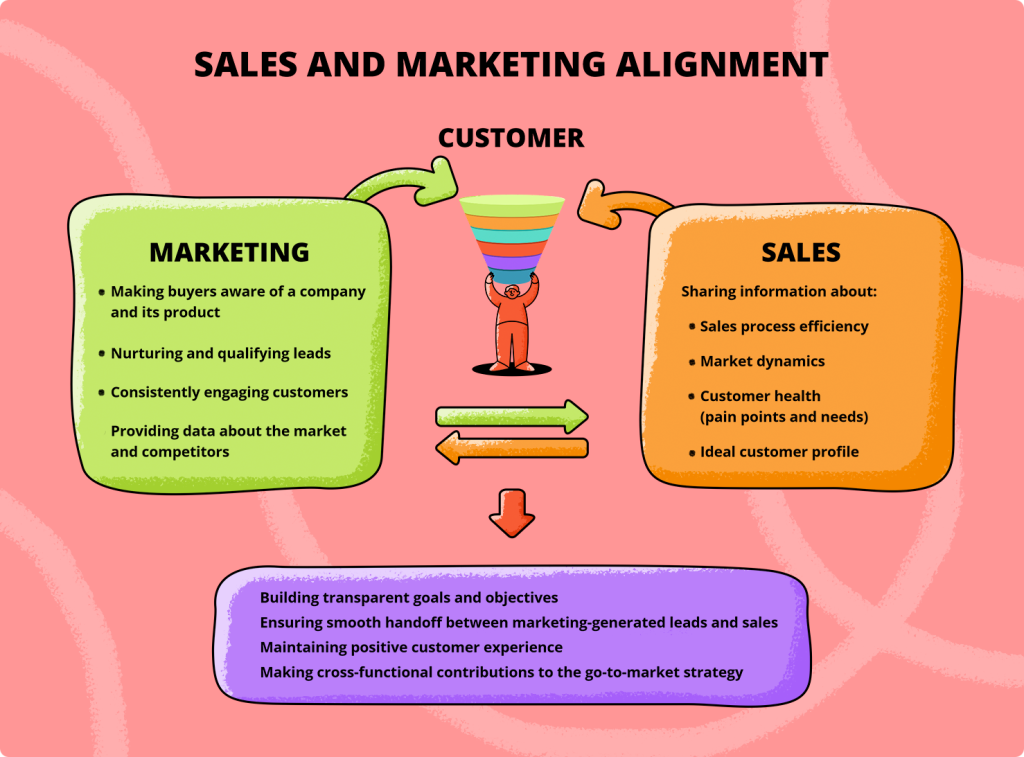
Leveraging Multiple Digital Marketing Channels
Integrating multiple digital marketing channels is key to maximizing the impact of AI solutions.
Multi-Channel Strategy
- SEO and Content Marketing: Optimize website content and blog posts to drive organic traffic.
- Social Media and Email Marketing: Use targeted social media campaigns and email marketing to generate and nurture leads.
Consistent Messaging
- Unified Brand Message: Ensure all digital marketing efforts convey a consistent brand message, enhancing customer trust and engagement.
- Effective Advertising: Leverage paid channels like Google Ads to reach potential customers and drive conversions.
Implementing Advanced Analytics and Reporting Tools
Advanced analytics and reporting tools are essential for measuring the impact of AI solutions.
Real-Time Analytics
Google Analytics: Use Google Analytics and other tools to monitor website traffic, user behavior, and conversion rates in real-time.
Closed-Loop Reporting: Implement closed-loop analytics to track marketing campaigns and sales outcomes.
Comprehensive Performance Reporting
Actionable Insights: Generate detailed reports that provide actionable insights for optimizing marketing and sales strategies.
Continuous Improvement: Use regular reporting to refine your AI strategies and drive better business outcomes.
Enhancing Sales Funnel Efficiency with AI-Driven Tools
Optimizing the sales funnel is crucial for converting leads into paying customers.
Lead Scoring and Qualification
Effective Lead Management: Use AI to implement a robust lead scoring system that identifies high-quality leads.
Sales Pipeline Optimization: Optimize the sales pipeline by leveraging data-driven insights to guide lead nurturing and conversion.
Streamlining the Sales Process
Automation: Integrate AI tools to automate repetitive tasks and reduce friction in the sales cycle.
Conversion Rate Improvement: Continuously refine the sales process based on actionable data to achieve higher conversion rates.
Enhancing Customer Relationship Management with AI
Integrating AI into customer relationship management (CRM) systems enhances customer engagement.
Unified Customer Profiles
Data Integration: Use AI to consolidate customer data from multiple sources into unified customer profiles.
Personalized Communication: Tailor marketing campaigns based on these profiles to improve customer interactions and satisfaction.
Driving Customer Loyalty
Improved Customer Experience: Leverage AI insights to provide a personalized, seamless customer experience.
Long-Term Retention: Use data-driven strategies to enhance customer retention and foster long-term loyalty.
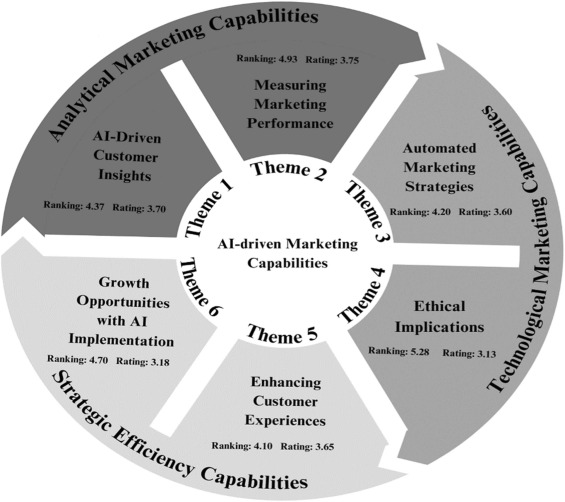
Testimonials
Johny
"LinkLumin’s AI solutions have completely transformed how we analyze customer data. With predictive analytics and automation, we’ve increased our marketing ROI by 50%!"
Emily Davis
"Before LinkLumin, we relied on manual reports and guesswork. Now, AI-powered insights help us make data-driven decisions in real-time, leading to better business outcomes!"
Michael Johnson
"From lead qualification to customer support automation, LinkLumin’s AI has reduced our manual workload by 60%, allowing us to focus on strategic growth."
Michael Smith
"Thanks to AI-driven personalization, we’ve been able to deliver tailored content and offers to our customers at the right time—boosting engagement and retention!"
Lisa Taylor
"With AI-powered data processing and automation, we’ve streamlined our workflows and stayed ahead of the competition. LinkLumin’s AI services are a game-changer!"
Step into the Future with LinkLumin’s AI
Unlock the Power of AI with LinkLumin!
Stop wasting time on manual processes and outdated strategies. LinkLumin’s AI-powered solutions help you automate, optimize, and accelerate your business with cutting-edge artificial intelligence.
FAQs
What kind of AI services does LinkLumin offer?
We provide AI-powered automation, predictive analytics, chatbots, natural language processing (NLP), and machine learning-driven insights to optimize business operations.
How can AI improve my business performance?
AI helps automate repetitive tasks, analyze customer behavior, personalize experiences, optimize marketing efforts, and provide real-time data-driven recommendations to enhance efficiency.
Can LinkLumin’s AI integrate with my existing systems?
Yes! Our AI solutions seamlessly integrate with CRMs, marketing platforms, e-commerce tools, and enterprise software like Salesforce, HubSpot, Zoho, Microsoft Dynamics, and more.
Is AI only for large enterprises, or can small businesses benefit too?
AI is for everyone! Whether you’re a startup or a global enterprise, our AI solutions scale to fit your needs and help you drive efficiency, automation, and revenue growth.
How quickly can I see results with AI implementation?
Many businesses start seeing efficiency gains and performance improvements within weeks, depending on the complexity of AI integration and the use cases implemented.